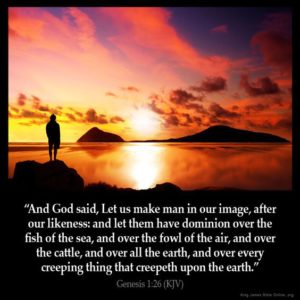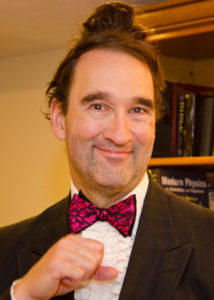Writers Are Like God? Why This Isn’t Blasphemy
Writers are like God? Any Christians, Jews, or Muslims reading this that might be offended; don’t be. We’re finite, God is infinite. We aren’t God; but we’re like Him, especially writers and other creative people.

These thoughts came to me this morning as I worked out some plot issues in my next book, My Undead Mother-in-law as I lay in bed before getting up. I considered changing roles for my characters and writing additional responsibilities for them. I’m nearly done writing the book, and I scanned the whole plot line in my mind.
Then it occurred to me, “That’s just what God does with all humanity.”
How Writers Are Like God: Timeline Point of View
A writer sees the whole plot of his or her novel as a unit: one story, with characters, and events. If there is a problem at the end, a change in the beginning can alleviate the issue.
So it is with God. He saw the end from the beginning. God knew all the people who would ever live and how each would live. He intervened as necessary to save each one. Yet He allows us complete freedom to choose and act as we please.
And so do writers, which leads to my second point.
How Writers Are Like God: Characters Have Freedom
Writers create characters. They make them interesting, realistic, and often self conflicted or contradictory. Many writers will tell you how they wanted a character to do something, but they went in an entirely different direction. Very often, writers won’t plan the plot as much as put their characters into situations and see how they react.
So God gives every person freedom to choose, each with unique set of talents and personality. God wants us to choose and choose Him and His way, of our own free will. But instead we go some other direction.
But God wants the plot to turn out well for us, in spite of ourselves. This leads to the next simularity.
How Writers Are Like God: Complete Control Over the Plot
A writer may want his character to move from point A to point B, but the character doesn’t want to move; they may be staid and stodgy. No problem! The writer will throw a war, an alien invasion, a hurricane, or a tornado, to make them move. And now the author’s character is at point B where their stodgy character will clash with another’s hyperactive character in interesting ways. Oh, and the two characters fall in love, just as the author wanted.
So God moves in our lives. We’re not interested in Him; so He puts us on a desert island, where it’s just us and Him. We get into scrapes; He rescues us. We lose loved ones; He comforts us when we’re inconsolable. And, like characters in a book, over time, we change.
How Writers Are Like God: Both Can Analyze Multiple Scenarios
Many times I’ve thought of multiple scenes and scenarios for a plot, some of which were mutually exclusive. Which should I do? What will be most entertaining to the reader? That is my prime directive. Going into that, are mutually contradictory requirements: the characters must be believable, so that the reader may identify with them, and behave in a consistent way, and yet the events must be surprising and unexpected. Even events that have long been foreshadowed must be executed in a startling manner.
God has a different prime directive than entertainment: our salvation. He’s really willing to do anything to save us, including being born as a human and dying on a cross. Also, like a writer, He’s not limited by anything; if people die, He can resurrect them. If they’re sick or injured, He can heal them.
This leads to many surprising situations, just like a book. Why would a good righteous woman die in her prime? God may have taken her away from seeing some great evil. By removing her, He may open opportunity to another person to serve in her place. Like a master chess or Go player, He sees far ahead at the impact of each disaster and each miracle. He chooses the best for His purpose of human salvation.
How Writers Are Like God: Both Are Outside Their Creation
No one would argue that a writer’s book is greater than she is or even equal to him. Everyone knows the book came from the writer’s mind and the characters in it cannot defeat or thwart the author, even if they all work together against the author, this was the author’s intention from the beginning.
Similarly, no one would argue the author’s book has existed as long as the author, or even that the book pre-existed the author. Nor would one contend that when the book is destroyed, the author is destroyed.
But I speak of common knowledge: the author precedes the book, and should the book be never published, and the manuscript destroyed, the author continues.
In the same way, God preceded and originated the Big Bang, and when this universe ceases to exist, he will continue to exist. Time is a creation of His, as much as space is. This was Einstein’s big discovery in the General Theory of Relativity: matter, space, and time are all bound up together and affect each other.
How Writers Are Like God: Another Writer’s Point of View
As I considered these things this morning, I thought of another writer: Dorothy Sayers, author of the Lord Peter Wimsy series of detective novels in the 20s and 30s. Ms. Sayers also wrote Christian philosophy and theology books. Of this latter group, I read Mind of the Maker.
A point she made in this book came to mind as I planned this blog post. God is like an Author of a book. God the Father is the Author Himself. Jesus Christ is His Spoken Word, the exact expression of Himself in human flesh. Jesus corresponds to the written book of the author. And the Holy Spirit is God as expressed in humanity. The Holy Spirit in humanity corresponds to experience of the book as read by the reader. The Holy Spirit gives Christians the experience of living with Jesus Christ in their own lives.
In Closing. . .
This has been quite a philosophical and theological post. If you’ve made it this far, thanks for staying with me! Please comment or email me, and I’ll send you a never before published excerpt from My Undead Mother-in-law.
This is Andy, signing off!
